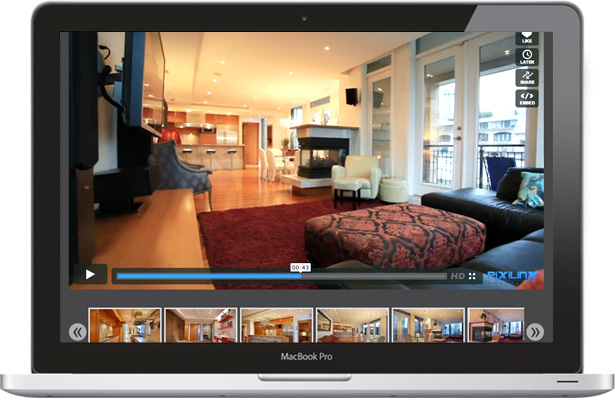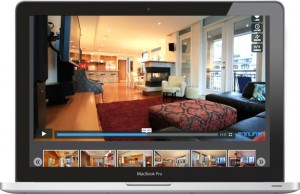Q: I have made numerous offers and been beaten out each time by other buyers. Do you have any tips for getting my offer accepted in a multiple offer situation?
A: The real estate market in Napa County is very active right now with a low inventory of homes and a lot of interested buyers who are feeling better about the economy and their jobs. The upshot is multiple offers and homes selling at or above their asking price in many cases. The tactics that you should employ to position yourself for success in this type of market depend mostly on the specifics of the particular property that you want to offer on and they should be something that you develop in close consultation with your agent. For example, your agent will probably suggest different tactics for an offer to a traditional, non-distressed seller than he or she would if you were offering on a short sale or a bank owned repossession.
There are some general suggestions that I can make without knowing your situation. First is understanding the market for the home you are targeting so that you can offer a realistic price. Ask your real estate agent to provide you with MLS data that shows the most recent trend in price appreciation as opposed to relying solely on comparable sales. The market is moving fast and comparable sales are in many cases not indicative of current values. Second you should anticipate that at least some of the offers that you will be competing with will be “all-cash” with no loan contingency. Aside from offering a good price, the best way to compete with all-cash offers is to go through the underwriting process to be approved for a loan subject only to review of title and appraisal. Pre approval on your loan takes time and there are some roadblocks depending on the type of loan you seek, but doing so will make you look like a serious buyer and enable you to offer a shorter close of escrow period to the seller.
Q: We are hoping to refinance our current mortgage utilizing the HARP2 loan program and understand the program contains restrictions in regard to the timing of our original mortgage. What are the timing restrictions?
A: To be eligible for the HARP2 program, Fannie Mae requires that your original loan have been delivered prior to June 1, 2009; while Freddie Mac’s delivery date is before May 31, 2009. Speak with your mortgage broker to find out more information and if you are HARP eligible.
Q: What should I watch out for when making an offer on a tenant occupied property?
A: I assume that you intend to take title to the house with the tenant still in possession of the premises, in which case you would become the tenant’s landlord. If this is the case then, in addition to all of the normal inspections that a buyer makes to determine the condition of the property, you must also determine the condition of the tenancy. First of all you should have made your offer using a standard form residential income property purchase agreement or a regular residential purchase agreement with a “Tenant in Possession” addendum (most agents will have access to these documents through the California Association of Realtors). Both documents require the seller, among other things, to provide the buyer with copies of all current leases, rental agreements, service contracts and other agreements regarding operation of the property. You should also receive an estoppel certificate signed by the tenant confirming the terms of the tenancy and affirming that no defaults or claims are outstanding against the Seller. Further, provision must be made for transfer of any existing, unused security deposit from seller to buyer because the buyer, as owner, will be responsible to the tenant for return of the security deposit to the tenant at the end of the tenancy, minus any allowable deductions. There should also be some sort of prohibition on the seller making changes to the terms of the tenancy prior to close of escrow.
As a general matter, if this is your first rental property you should speak with an eviction attorney or service regarding the procedures and costs of removing a tenant from the property should the need arise. Further, review a good book on Landlord-Tenant law so that you will know what you are getting yourself into.
Q: I own a small business. Can I use the funds in my business account for all or any portion of my down payment and closing costs?
A: Most lenders require that funds being used for down payment and closing costs be verified with two months of asset statements for personal checking, savings and/or retirement accounts. In most cases, using business funds is not allowed but can be done on a case by case underwriting exception basis. Consult with your lender before committing any business funds towards the purchase of residential property.
Q: I am buying a home and need every penny to make the purchase, so do I really need title insurance?
A: It is impossible to give a blanket answer to your question because just as every property is unique, so is the condition of title unique to each property. I suggest that you consult with both your escrow/ title company and with your legal counsel regarding the advisability of buying title insurance for your situation. There are however some practical reasons for obtaining title insurance. The first is that if you are borrowing money to make your purchase then your lender will almost assuredly require that you purchase title insurance to cover both yours and your lender’s interest in the property. Secondly, the title company will run a public records check on the property that should point out problems with the chain of title such as defects in deeds, encumbrances on the property such as easements in favor of adjoining property owners, and the existence of neighborhood conditions, covenants and restrictions that could affect your use of the property. You will want to find these things out early in the purchase process before you remove your inspection contingencies so that you can work out problems, or try to obtain title insurance to cover your particular situation. Finally, even if you don’t want title insurance, the person who you sell to years from now probably will and a continuously insured title can smooth your resale.
Q: What are the changes that HUD is making to the FHA loan program?
A: As part of ongoing efforts to strengthen the FHA Mutual Insurance Fund, FHA announced a new premium structure for FHA insured single family mortgages. FHA will increase its annual mortgage insurance premium (MIP) by 0.10% (new rate 1.25%) for loans under $625,500 and by 0.35% (new rate 1.50%) for loans above that amount. Upfront premiums (UFMIP) will also increase by 0.75% (new rate 1.75%).
The 0.10% increase is effective for case numbers assigned on or after April 1, 2012, while the 0.35% increase on loan amounts over $625,500 is effective for case numbers assigned on or after June 1, 2012. The upfront change is effective for case numbers assigned after April 1, 2012.
Contact Karen Magliocco for any questions at 707-249-1600 or email us
About Karen Magliocco


















